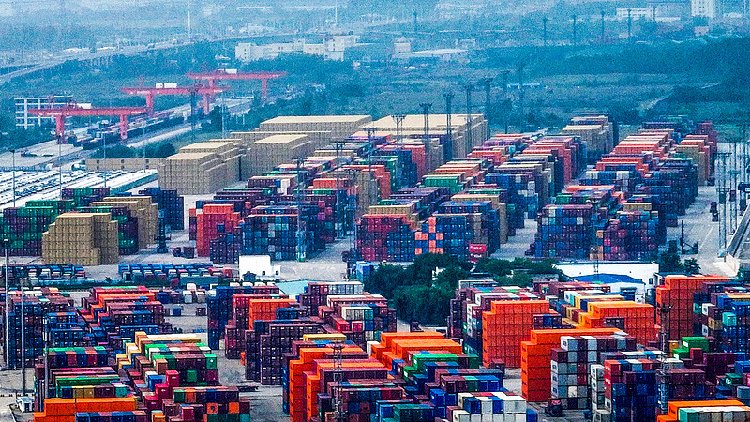Chinese authorities criticize U.S. tariff policies, pledge to defend national interests
U.S. President Donald Trump revealed on Wednesday a new series of tariffs, establishing a baseline rate of 10 percent on imports from all trading partners, with elevated rates for specific countries. Those "reciprocal tariffs" will be implemented on April 5 and 9, respectively. In response to the U.S. action, China declared on Friday that it would impose a 34 percent additional tariff on all products coming from the United States, effective April 10, aligning with the rate of the U.S. "reciprocal tariffs" on Chinese exports.

In a statement addressing its stance against U.S. tariff abuse, the government criticized the U.S. action as a quintessential example of unilateralism, protectionism, and economic bullying.
Claiming to pursue "reciprocity" and "fairness," the U.S. is engaging in zero-sum games that prioritize an "America First" agenda and "American exceptionalism," the statement asserted.
The U.S. is using tariffs to undermine the existing international economic and trade structure, elevating U.S. interests above global welfare and jeopardizing the legitimate interests of countries worldwide to further its hegemonic goals, according to the statement.
"Such actions will inevitably face widespread opposition from the international community," it added.
On Wednesday, U.S. President Donald Trump announced a new set of tariffs, which includes a 10 percent baseline levy on imports from all trading partners, alongside higher rates for select nations. These "reciprocal tariffs" are set to take effect on April 5 and 9.
In response, China declared on Friday that it will impose additional tariffs of 34 percent on all U.S. imports starting April 10, aligning its rates with the U.S. "reciprocal tariffs" on Chinese goods.
The Chinese government stated that it will take firm actions to protect its sovereignty, security, and developmental interests.
It urged the U.S. to refrain from using tariffs as tools to hinder China's economic progress and to stop undermining the legitimate developmental rights of the Chinese populace.
In its statement, the Chinese government also emphasized its commitment to expanding openness and creating a favorable business climate.
As the world's second-largest economy and consumer goods market, China intends to further open its doors to international markets, regardless of changes in the global landscape.
China plans to continue enhancing its level of openness, gradually expanding institutional openness through regulations, management, and standards, and implementing high-level trade and investment liberalization policies. The goal is to cultivate a first-rate business environment that is market-oriented, law-based, and internationally compliant, thereby sharing development opportunities globally for mutual benefit and win-win results.
It reiterated that economic globalization is an essential avenue for human progress.
Highlighting the importance of the rules-based multilateral trading system, with the World Trade Organization at its core, the statement noted its significant contributions to global trade advancement, economic growth, and sustainable development.
Open cooperation is deemed the historical trend, and the world should never revert to isolation and fragmentation, the statement stressed.
Mutual benefits and win-win cooperation reflect collective aspirations, while "beggar-thy-neighbor" economic bullying will ultimately backfire, it stated.
The international community shares the collective responsibility to guide economic globalization towards greater openness, inclusiveness, balanced benefits, and fair outcomes.
In the statement, the Chinese government asserted that development is a universal right for all nations, not just a privilege for a select few.
It called for addressing international affairs through collective consultation and for shaping the world's future collaboratively.
"There are no winners in trade wars or tariff wars, and protectionism offers no way forward," the statement recounted.
All countries should adhere to principles of extensive consultation, joint contribution, and shared benefits, support genuine multilateralism, collectively oppose all forms of unilateralism and protectionism, uphold the international system centered around the United Nations, and maintain the WTO-centered multilateral trading order, it stated.
"We are confident that the overwhelming majority of countries that believe in fairness and justice will stand on the right side of history and make choices aligned with their own interests," said the Chinese government. "What we need in today's world is justice, not hegemony."
Sanya Singh for TROIB News
Find more stories on Business, Economy and Finance in TROIB business












